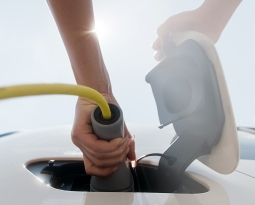The Best Things I Didn’t Know About EV Service and Maintenance
 As we are diving into our electric vehicle (EV) series and learning about the benefits of owning and driving EVs, I know I am always worried about long term costs and maintenance. Being a busy person, when it is time to get the regular oil change, fluid top off, replacement parts like brakes and regular mile service done, I dread making the appointment. I know the car dealers work hard but I also know it could be a whole day or more without my car and then a big fat bill. Yes, initially it may have been more expensive to purchase an EV, but the gap is closing and with the new incentives out there to purchase the EV it’s time to look at maintenance and service.
As we are diving into our electric vehicle (EV) series and learning about the benefits of owning and driving EVs, I know I am always worried about long term costs and maintenance. Being a busy person, when it is time to get the regular oil change, fluid top off, replacement parts like brakes and regular mile service done, I dread making the appointment. I know the car dealers work hard but I also know it could be a whole day or more without my car and then a big fat bill. Yes, initially it may have been more expensive to purchase an EV, but the gap is closing and with the new incentives out there to purchase the EV it’s time to look at maintenance and service.
As someone who always wants to get to point ‘B’ from point ‘A’ very quickly and efficiently, I may or may not use my brakes a little more than the average driver. I was pleasantly surprised when I found out that EV’s utilize regenerative breaking most of the time in place of regular disk brakes. You may never need to replace brake pads again since they are rarely used. My 19-year-old 1993 self could have never seen this coming, as I am pretty sure I kept most brake companies afloat. With a simpler structure, EV’s have three main parts where most of the work is required the engine, inverter, and onboard charger. EV’s come with a different drive train that uses a type of water coolant which is a combination of antifreeze and distilled water. With fewer moving parts and no oil to change, it means less trips to the shop.
Very little maintenance work needs to be done on EV’s yearly. A brand-new EV will most probably need to be serviced after the first two years or 18,000 miles while a gas-powered vehicle requires multiple oil changes every 3,000 to 5,000 miles. Extra incentives for EV owners such as, a credit when swapping out old batteries for new one’s help avoid emergency repair costs that may occur when owners of gas cars are not able to keep up with maintenance schedules. With batteries now lasting between 10 and 20 years, which was initially the questionable large cost of an EV, has the comparable life expectancy equivalent to 200 thousand miles in a gas-powered vehicle. So, about how much can you save over the life of your electric vehicle? Great Plains Institute consumer reports study finds EV’s maintenance costs to be 50% Less than gas powered vehicles.
So, not only are they less expensive to maintain and just pretty darn cool to look at, and they can also save lives. CNN Business reported transitioning only 6% of American vehicles to electric could potentially prevent 67000 premature deaths. The nostalgia of an overheated oil burning side of the road car during a road trip in your teens seems like something of days past. Enjoying more time in your schedule and less out of pocket financially, while contributing to a cleaner world, is something I can see creating a new nostalgia for the future. What kind of cleaner environment can we be looking at with the use of EV’s? Follow the series to find out.
Teresa Perkins is a climate change and sustainability journalist, who is creating research-based climate change content pertaining to sustainable energy at local, national, and global level for publication and distribution. She partners with non-profit organizations for innovative ideas and sustainability projects and connects global UN Climate Change reports to local initiatives.






